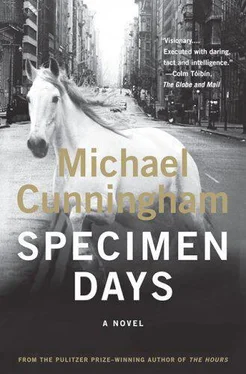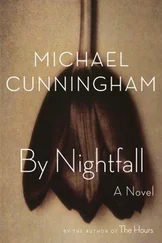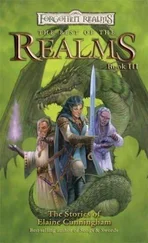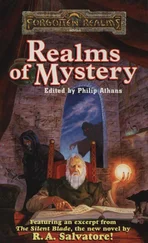Michael Cunningham - Specimen Days
Здесь есть возможность читать онлайн «Michael Cunningham - Specimen Days» — ознакомительный отрывок электронной книги совершенно бесплатно, а после прочтения отрывка купить полную версию. В некоторых случаях можно слушать аудио, скачать через торрент в формате fb2 и присутствует краткое содержание. Город: New York, Год выпуска: 2005, ISBN: 2005, Издательство: Farrar, Straus and Giroux, Жанр: Современная проза, на английском языке. Описание произведения, (предисловие) а так же отзывы посетителей доступны на портале библиотеки ЛибКат.
- Название:Specimen Days
- Автор:
- Издательство:Farrar, Straus and Giroux
- Жанр:
- Год:2005
- Город:New York
- ISBN:0-374-70515-1
- Рейтинг книги:4 / 5. Голосов: 1
-
Избранное:Добавить в избранное
- Отзывы:
-
Ваша оценка:
- 80
- 1
- 2
- 3
- 4
- 5
Specimen Days: краткое содержание, описание и аннотация
Предлагаем к чтению аннотацию, описание, краткое содержание или предисловие (зависит от того, что написал сам автор книги «Specimen Days»). Если вы не нашли необходимую информацию о книге — напишите в комментариях, мы постараемся отыскать её.
Specimen Days — читать онлайн ознакомительный отрывок
Ниже представлен текст книги, разбитый по страницам. Система сохранения места последней прочитанной страницы, позволяет с удобством читать онлайн бесплатно книгу «Specimen Days», без необходимости каждый раз заново искать на чём Вы остановились. Поставьте закладку, и сможете в любой момент перейти на страницу, на которой закончили чтение.
Интервал:
Закладка:
She awakened, however, when Simon entered the room. Her eyes were changed. They were fading from orange to a deep, unhealthy-looking yellow, like egg yolks gone bad.
“Good morning,” Simon said. “How do you feel?”
“Dying,” she answered.
“But no pain.”
“No much.”
“Do you think you could eat something?”
“No.”
“It’s not irradiated groundhog, you know.”
“I know.”
He stood beside her. Still, even in extremis, there was this feeling that they were on a date that wasn’t going well but refused to end. He made to put his hand on her forehead but decided she probably wouldn’t wan’t him to. Besides, it would have been an empty gesture, a ritual expression of concern for the afflicted. There was no point in performing such gestures for a Nadian.
He said, “They killed your family and sent you to Earth.”
“Yes.”
“I wonder-”
She waited for him to finish the question. He waited as well. He hadn’t been sure when he launched that sentence where, exactly, he expected it to land, though he could think of any number of possibilities. / wonder ifthafs why youre so remote and strange. I wonder ifthats why you came with me. I wonder if you helped me because you feel guilty about what you brought down on your own family.
When it had become apparent that he was not going to speak further, she said, “Simon?”
“Uh-huh?”
“Window.”
“You want me to close the window? Is it cold in here for you?”
“No. Take.”
“You want me to take you to the window.”
“Yes.”
“Sure. No problem.”
He paused over how and where to touch her. She helped him by lifting her long, thin Giacometti arms and putting her hands around his neck. Apparently she could no longer walk, then. He slipped his right forearm under her upper back, his left under the sinewy stalks of her thighs. He lifted her.
For a moment, she held herself apart from him. It was subtle but palpable. She maintained herself briefly as a dependent but private being. Then she relaxed and gave herself over into his arms. She was, he thought, too weak to do otherwise.
Gently, carefully (he wasn’t sure whether or not to believe her when she said she was not in pain or not in much pain), he carried her to the window. The window looked out over the packed dirt of the yard, beyond which stood the single tree under which they had had their dinner the night before. He thought it was an elm. Or an oak. He wasn’t programmed for the identification of trees. The tree stood in the precise middle of the view, like a sentry. Beyond it was the vast green flatness of the plain, bright in the early sun, suspended, without wind or cloud, as if all that empty land were waiting for something to begin, for a note to strike or a pair of hands to clap. But most prominently there was the tree, dead center, in full leaf, shimmering in the expectant silence of the morning. Simon wondered how strange this must be to Catareen this green terrestrial silence spread out under this ice-blue sky. Where she came from it was (according to the vids) mostly rock and mud, variously black, pewter, and an opaque silvery-yellow, from which tangles of moss and bracken struggled, black-green like seaweed under an eternally clouded sky that bled a soft, drizzly semilight. It was whatever villages had managed to establish themselves in the rifts and valleys that occurred here and there among the mountains, sheer and ice-tipped, pinnacled, like titanic dead gray cathedrals, vast impassive assertions of volcanic rock and permafrost that towered over the huts and corrals, the modest squares of unprosperous garden, the tiny turrets and steeples of the kings, miniature replicas of the darkly glittering peaks.
Had it been beautiful to her? Had she felt stroth there?
Simon held her before the window that looked out onto the tree. It might have been the tree and only the tree Simon had brought her to see, though of course neither he nor Catareen had thought anything of it, one ordinary tree spreading over a standard-issue patch of dirt. It was only now, at this window, with the dying Catareen in his arms and the tree so perfectly centered in the view, that Simon understood it to be in any way singular or mysterious.
He said, “Urge and urge and urge, always the procreant urge of the world.”
“Yes,” she answered.
They said nothing further. He held her as she looked out the window. Her face was brighter in the strong light. Her eyes seemed to take on a hint of their familiar depths, their orange and amber. She seemed, briefly, more alive, and it occurred to him that she might be undergoing an unexpected resurgence. Was being taken to the window some sort of healing ritual? It seemed possible. It did not seem impossible.
Then he felt her arms slackening around his neck. He understood that even this was a strain for her. He said softly, “Shall I take you back to bed now?”
“Yes,” she answered, and he did.
The compound pulsed with last-minute preparations. People and Nadians rushed from house to barn and back again. The three Nadian men, who were technicians of some kind, went up and down the ramp of the spaceship, in and out of its entry portal, with such rapidity it seemed they must be doing nothing more than touching an agreed-upon goal and hurrying out again, laughing, emitting odd little yips and yelps, slapping palms whenever they passed one another. Simon, without duties, wandered the grounds. Emory was on the front porch arguing passionately with one of the Nadian women (she was, it seemed, a doctor) and Lily, the tattooed human scientist. The mustached, small-chinned man (whose name was Arnold) seemed to have been charged with the care of Emory and Othea’s baby. He walked the infant in circles in the yard, bouncing it and saying, “Little snip, little snip, little snip.” In the barn, among the consoles and keyboards, Othea and the other Nadian woman did their best to calm the frumpily majestic Ruth, who sat performing her last-minute calculations through a fit of inexplicable tears as the bells around her neck chimed softly.
Crazy, Simon thought. They’re all crazy. Though of course the passengers on the Mayflower had probably been like this, too: zealots and oddballs and ne’er-do-wells, setting out to colonize a new world because the known world wasn’t much interested in their furtive and quirky passions. It had probably always been thus, not only aboard the Mayflower but on the Viking ships; on the Ninafinta, and Santa Maria; on the first convoys sent off to explore Nadia, about which the people of Earth had harbored such extravagant hopes. It was nut jobs. It was hysterics and visionaries and petty criminals. The odes and monuments, the plaques and pageants, came later.
Simon could not settle. He could not find a plausible spot for himself. After meandering from place to place, trying to stay out of the way, trying not to look as idle as he was, he ran into Othea coming out of the barn. He spoke to her, though he knew she wouldn’t welcome it. It was something for him to do. And he did, in fact, have a question or two only she could answer.
He said, “Catareen is pretty weak today.”
“Yes,” she answered impatiently. He suspected she would have brushed him off entirely had he broached any other subject.
“Is there any chance she could rally? I mean, could she still have a good period before”
“No. There are no remissions. Some take longer than others, and frankly I suspect she could hang on for quite a while still. The more resilient individuals can take weeks and weeks.”
“We’ve decided we want to come along.”
“Good. Now, if you’ll excuse me”
“Catareen will need a bed,” Simon said. “Maybe I could go aboard with one of the technicians and figure out the best way to make her comfortable.”
Читать дальшеИнтервал:
Закладка:
Похожие книги на «Specimen Days»
Представляем Вашему вниманию похожие книги на «Specimen Days» списком для выбора. Мы отобрали схожую по названию и смыслу литературу в надежде предоставить читателям больше вариантов отыскать новые, интересные, ещё непрочитанные произведения.
Обсуждение, отзывы о книге «Specimen Days» и просто собственные мнения читателей. Оставьте ваши комментарии, напишите, что Вы думаете о произведении, его смысле или главных героях. Укажите что конкретно понравилось, а что нет, и почему Вы так считаете.












